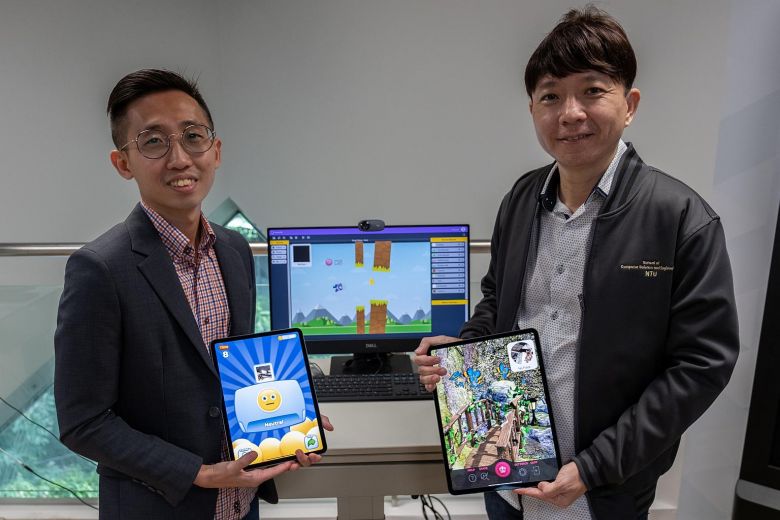Lessons and leadership during the switch to online learning
Two months after the COVID-19 crisis forced educators across the United States to leave their classrooms and start teaching online, the scope of the changes and challenges has now become clear, and educational leaders have started to identify what’s working and what still needs improvement.
During a recent edLeader Panel, the superintendent of one of America’s largest school districts spoke with a former state superintendent and other education leaders about key issues affecting students, parents, and educators, including digital access and equity, online privacy, and funding.
Related content: How equity strategies improve student outcomes
Overall, the panelists are optimistic that the transition to online learning will hasten the adaptation of technologies and teaching methods that will better prepare students for 21st-century careers. And while initial plans are being developed for students to return to classrooms in the fall, the need for effective online education will not only remain but will be more important and better integrated going forward.
Changing the timespan from decades to days
The integration of new technologies in schools has been an ongoing process that sometimes seems to take longer than it should. Tom Luna, the former state superintendent of Idaho, remarked that “it took 20 years to get the overhead projector out of the bowling alley and into the classroom,” which makes the quick transition to online learning required in March of this year all the more remarkable.
Dr. Jack Smith, superintendent of schools in Maryland’s Montgomery County, explained how his district facilitated the transition for its 160,000 students–some of whom had no computers or connectivity at home, while others in affluent suburbs live with a variety of devices and have high-speed WiFi.
Knowing the lack of digital access would severely impact the education of students in lower-income households, the district decided to empty the “Chrome carts” used to bring Chromebooks to classrooms and set up drive-through distribution points where students could receive computers and connectivity devices. More than 45,000 households received computers in this way, and the district now uses a case-management approach to reach out to students who are not logging in for classes.
While digital access remains an issue, educators and students now engaged in online teaching and learning have new types of issues to contend with. Privacy is one key concern, as students and their data need to be protected online, but many teachers and students are also seeing and hearing what happens inside each other’s homes on a daily basis, which they may have never been prepared to do.
To deal with these types of situations, the panelists emphasized the need for clear and easily understood privacy policies and transparency about what students and their parents should expect from remote education. Students also need support and guidance about online behavior, including what can or should not be shared via social media.
Preparing for an uncertain future
Based on recent discussions about reopening schools in the fall, Dr. Daniel Domenech, executive director of the American Association of School Administrators, believes that only limited numbers of students will be back in the classroom at any one time, so there will be continued switching back and forth between remote and on-site education as part of a blended-learning approach. This will require further funding and technological solutions to deal with the vast inequity between the students who have full and fast access to online education, and the many students who still do not.
Dr. Smith recommends using the community and its knowledge base to obtain information, anticipate issues, and develop solutions. He has started having small-group discussions with school principals to learn about key issues and what can help to resolve them. Meanwhile, the district is also moving forward with a professional learning program for educators that is focused on blended learning.
Linnette Attai of Playwell, LLC also encouraged districts to provide new professional learning, with an emphasis on helping educators deal with issues such as privacy and student participation that they were trained to handle in the classroom but probably not online. And for district administrators, she believes listening will be a crucial part of the process as they develop “the next iteration of education that will work in each locality.”
Luna emphasized the importance of making parents feel comfortable with online education, first and foremost by taking steps to keep it safe and secure from predators and hackers. Knowing that many parents are also concerned about the privacy of student data, he believes there should be transparency about what data is being collected and why with educators being prepared to explain how the data serves educational purposes.
From a state-level perspective, he pointed out that a constitutional requirement to provide uniform access to education may require states to provide additional funding for digital access. There will also be a need to revisit foundational elements of public education finances, such as funding based on attendance.
Despite all the challenges of remote education, there was agreement that it has become even more important at a time when applying for a job, receiving training, and working with colleagues are all being done online.
About the presenters
Dr. Daniel A. Domenech has served as executive director of the American Association of School Administrators since July 2008. Daniel has more than 36 years of experience in public education, 27 of those years he served as a school superintendent. Prior to joining AASA, Daniel served as the senior vice president for National Urban Markets with McGraw-Hill Education. In this role, he was responsible for building strong relationships with large school districts nationwide. Prior to his position at McGraw-Hill, Daniel served for seven years as superintendent of the Fairfax County, VA, Public Schools, the 12th largest school system in the nation with 168,000 students. He earned a Bachelor of Arts degree from Hunter College in New York City and a Ph.D. from Hofstra University in Uniondale, N.Y.
Linnette Attai is the founder of PlayWell, LLC, a global privacy and marketing compliance consulting firm. Linnette brings more than twenty-five years of experience to the work, building organizational compliance programs, assessing technologies, providing training, government relations, and managing incident response communications. She also serves as a virtual chief privacy officer and as a General Data Protection Regulation (GDPR) data protection officer to a range of organizations. Linnette is a recognized expert in the youth and education sectors and speaks nationally on data privacy. She is a TEDx speaker and author of the books, “Student Data Privacy: Building a School Compliance Program” and “Protecting Student Data Privacy: Classroom Fundamentals.”
Dr. Jack Smith began his tenure as superintendent of Montgomery County Public Schools in Maryland on July 1, 2016. A dedicated, lifelong educator, Dr. Smith has been a teacher, principal, curriculum director, and a local superintendent of schools. His goal has always been to provide all students, regardless of their background, with options and choices upon graduation. Dr. Smith’s career began as a teacher in Richland, Washington. In 1992, he relocated to Tokyo, Japan, where he served as an international school principal. He returned to the United States in 1998 and joined Calvert County Public Schools, where he served in numerous leadership roles and as superintendent of schools for seven years. In 2013, he was named Maryland Superintendent of the Year. Dr. Smith was appointed Maryland interim state superintendent of schools in September 2015, having served as a chief academic officer with the Maryland State Department of Education from 2013 to 2015.
Tom Luna is the former Idaho Superintendent of Education. He was elected Idaho State Superintendent of Public Instruction in 2006 and served two terms. While serving as State Superintendent, Tom was elected President of Council of Chief State School Officers, an organization made up of all 50 state chiefs. In 2009, Tom was appointed by the US Secretary of Education to the National Assessment Governing Board. Tom was also a member of Chiefs for Change. During Tom’s years as State Superintendent, Idaho passed arguably the most comprehensive education reforms laws in the country. Some of the accomplishments included modernizing collect bargaining laws, creating a career ladder for teachers, expanding school choice by providing facility funding for charter schools, and removing arbitrary laws that capped growth. Idaho created the Fast Forward program that gives high school students up to $4100.00 to pay for college credit-bearing courses. Tom worked with educators to create the Idaho Math Initiative and partnered with NASA and Idaho Teacher in Space Barbara Morgan to create the Idaho Science and Aerospace Scholars Academy.
About the host
Ann McMullan is Project Director for CoSN’s Empowered Superintendents Initiative. Ann served as Executive Director, Educational Technology in the Klein Independent School District, near Houston, Texas until September 2013, when she and her family moved to Los Angeles, California. For 16 years Ann led the district team that provided professional development on technology and 21st-century instructional strategies to 4,000 professional educators serving 50,000 students. Ann served as co-chair of Texas Education Technology Advisory Committee which developed the Texas Long-Range Plan for Technology, 2006-2020. Today, Ann is based in Los Angeles working as a public speaker, writer, and education consultant focused on leadership and planning to meet the needs of today’s students. Ann serves on the Project Tomorrow advisory council and is a leadership consultant with the Executive Service Corps of Southern California, serving non-profit associations. Ann co-authored Life Lessons in Leadership, a guide for leaders ages eight to 88.
Join the community
Professional Learning & Practice is a free professional learning community on edWeb.net that presents edWebinars and hosts online discussion forums on a wide range of issues on professional learning and educator practice.
This edWeb broadcast was sponsored by The ProEthica® Program. The recording of the edLeader Panel can be viewed by anyone here.
Source: https://www.eschoolnews.com/2020/05/29/lessons-and-leadership-during-the-switch-to-online-learning/?all




